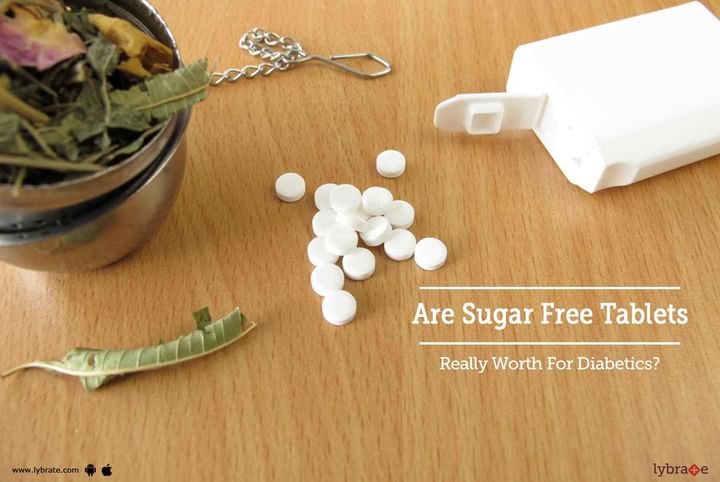Are Sugar-Free Tablets Really Worth For Diabetics?
Diabetes has proven to be a dreadful disease and can lead to malfunctioning of other body parts too. There are a number of different types of oral hypoglycemics available for treating type 2 diabetes, one of them are sugar-free tablets and they work in different ways. They may be used on their own and some can be used in conjunction with each other, or with insulin.
Many people choose to purchase sugar-free tablets as opposed to regularly sweetened medicines with the impression that they are healthier than the original version. The truth is that whether a candy is sugar-free or regular, it is still sweet and most candies are high in calories, fat, and carbohydrate.
Sometimes cravings hit and just a small treat is needed to satisfy your sweet tooth. Sugar-free tablets typically will provide fewer carbs and calories than regular medicines, although sometimes just slightly fewer. The key here is that sugar-free does not mean carbohydrate free, so if you are watching carbs or calories, you still need to be mindful not to overdo it. The nutrition label must be maintained in order to keep track of total carbs and calories that are taken in.
Sugar-free doesn't mean fat-free
Sugar-free tablets, in particular, may be high in saturated fat, which is found in cocoa butter. In addition, many medicines that use sugar alcohols as sweetener have more saturated or trans fat than regular versions. Therefore, it's essential to be mindful when eating sugar-free tablets especially, if you have a heart disease, diabetes, and any other reason to be careful about your fat intake.
Aspartame, Saccharin, and Neotame are the most common sugar-free tablets ever known. These tablets are also used to prepare beverages like tea, coffee, shakes etc. They are also used in special dishes like kheer. Possible side effects of these kinds of medicines are - weight gain, skin rashes, and gastrointestinal disturbances. They also increase the risk of hypoglycemia, which can be life-threatening, particularly in elderly people.
Common side effects of sugar-free inhibitors include - flatulence, diarrhea, and abdominal pain, especially upon initial treatment.
Sugar-free treats are not free foods because they still contain calories, fat, and carbohydrate. Sometimes they may not be as satisfying as the real thing. Therefore, it may make more sense to simply have a small serving of a sweet treat. But the best is to avoid sugary food to keep your diabetes under control.


+1.svg)
